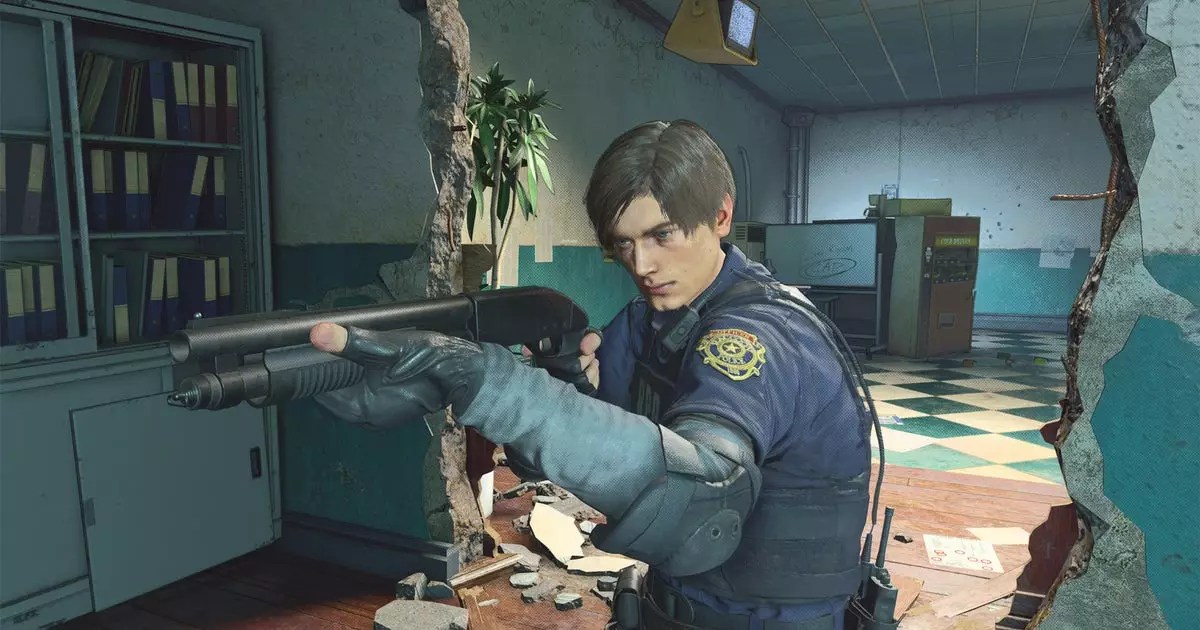The realm of video gaming is notorious for its unpredictability and fluctuating audience interests. Capcom, a stalwart in the industry, has long been known for its timeless franchises, particularly the Resident Evil series. Yet, recently, they took a fateful plunge into multiplayer territory that has left both fans and critics discombobulated. The announcement of Resident Evil Re:Verse’s demise reveals much about Capcom’s struggles to seamlessly integrate multiplayer with a franchise that thrives on solitary horror and narrative depth. The ambitious attempt to create a multiplayer experience underscores not just overreach but perhaps a misreading of their loyal fanbase.
Resident Evil Re:Verse was supposed to be a celebratory tribute for the franchise’s 25th anniversary, a dedicated multiplayer experience underpinning nostalgia for long-time players. However, as Capcom has now shuttered the game’s servers, one must question whether the sheer audacity of attempting an online Resident Evil was misjudged. The game peaked at a mere 2,080 concurrent players on Steam—a figure that starkly contrasts with the explosive numbers noted for competitive games, suggesting that most fans were less than enthusiastic about the multiplayer approach. It seemed to fall into the realm of nostalgia without context; the essence of Resident Evil lies within intertwining fear and isolation, not in frenetic group play.
A Misguided Nostalgia Trip
The mechanics of Re:Verse, a third-person shooter featuring iconic characters, were laden with references to the franchise’s storied past. Players could take on the role of infamous villains, such as Jack Baker from Resident Evil 7, and participate in chaotic multiplayer matches. Yet this concept raises a crucial question: Does nostalgia alone make for compelling gameplay? The answer appears to be a resounding no. Players desire not just a familiar face but engaging mechanics and a transformative experience that enhances the Resident Evil narrative. Re:Verse merely scratched the surface, serving as a facade rather than a satisfying layer to the already rich narrative tapestry of the franchise.
Attempts to integrate online play haven’t always been disastrous; earlier installments, such as Resident Evil 5 and Outbreak, demonstrated potential. They incorporated co-op features that felt organic within the game’s structure and narrative. Outbreak, specifically, provided players with a unique survival experience in a multiplayer format. However, Re:Verse’s execution falters, exemplifying Capcom’s ongoing struggle with multiplayering the horror experience. One cannot help but reminisce about the days when Resident Evil’s horror elements were paramount, something that Re:Verse painfully neglected amid its multiplayer aspirations.
The Cost of Gaming’s Evolving Landscape
As the gaming industry continues to evolve, trends such as online multiplayer experiences are increasingly valued by new gamers. Yet Capcom’s attempt to cater to this demand with Resident Evil Re:Verse ultimately proved fruitless. The staggering statistic that 70% of games with online requirements face a similar fate raises alarms about the viability of purely multiplayer experiences in traditionally solo-focused franchises. The burden of attempting to adapt older titles for modern contexts has undoubtedly led to miscalculations, and the shuttering of Re:Verse marks yet another casualty in this ongoing battle to find relevance.
Capcom still chases the dream of a successful Resident Evil online experience. Recent dialogues with developers hinted that they entertained concepts for online-focused entries before pivoting to more traditional gameplay mechanics, such as those seen in Resident Evil Requiem. While the exploration of new gaming dynamics is essential, companies must remember what made their franchises beloved in the first place. Striking a balance between innovation and respecting the core tenets of a franchise is vital; without it, they risk alienating their loyal fans or, worse—losing the very essence of what makes their games memorable.
Lessons Unlearned
The closing of Resident Evil Re:Verse serves as a poignant reminder for both developers and consumers. The audacity of ambition should be tempered with an understanding of legacy; Capcom would do well to remember that their strength lies in delivering gripping horror experiences rather than attempting to conform to current gaming whims. The lessons from this misadventure aren’t merely about this particular game but serve as broader advice for the industry at large. While chasing trends is part of growth, it’s crucial to maintain the integrity of established franchises that hold cherished positions in the hearts of gamers. Balancing the new with the familiar remains a delicate but essential dance in the ever-evolving gaming landscape.


Leave a Reply